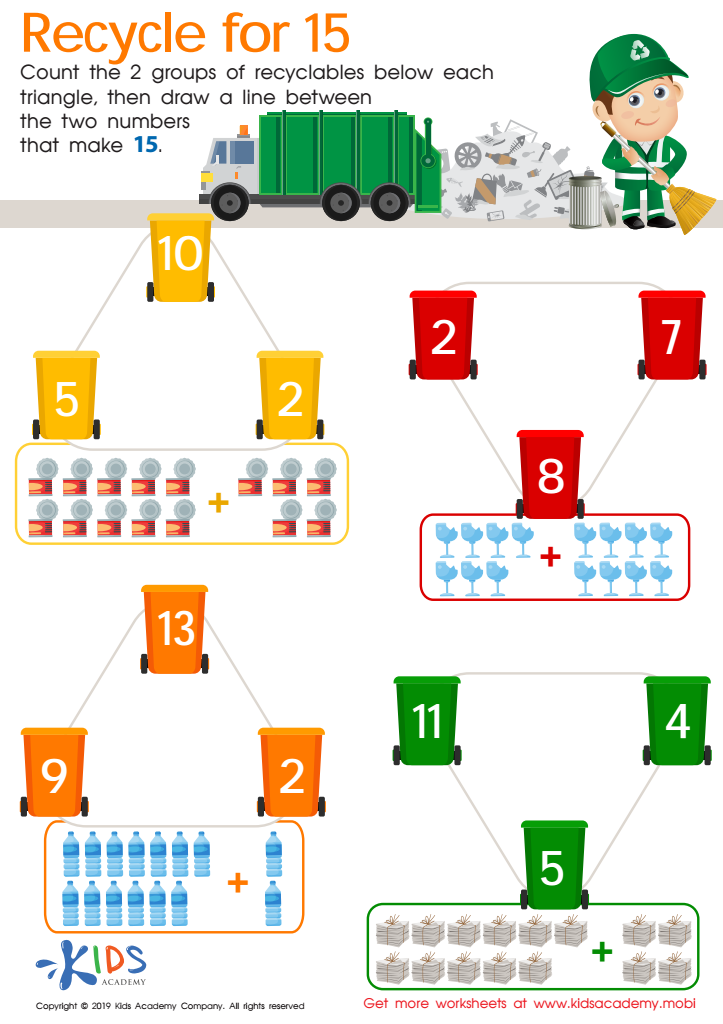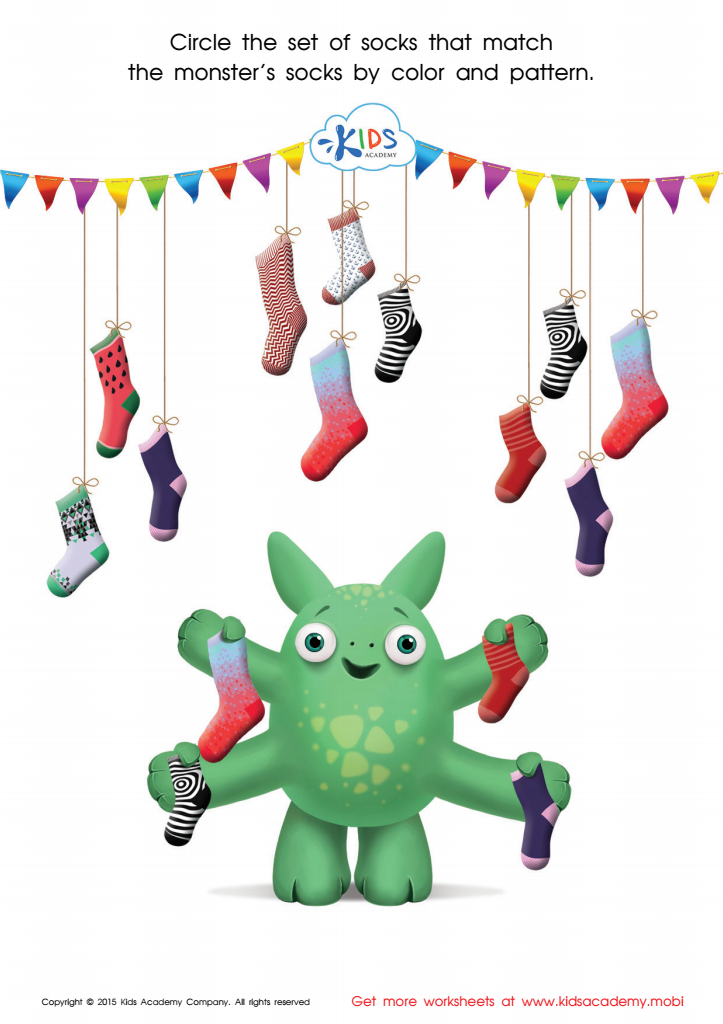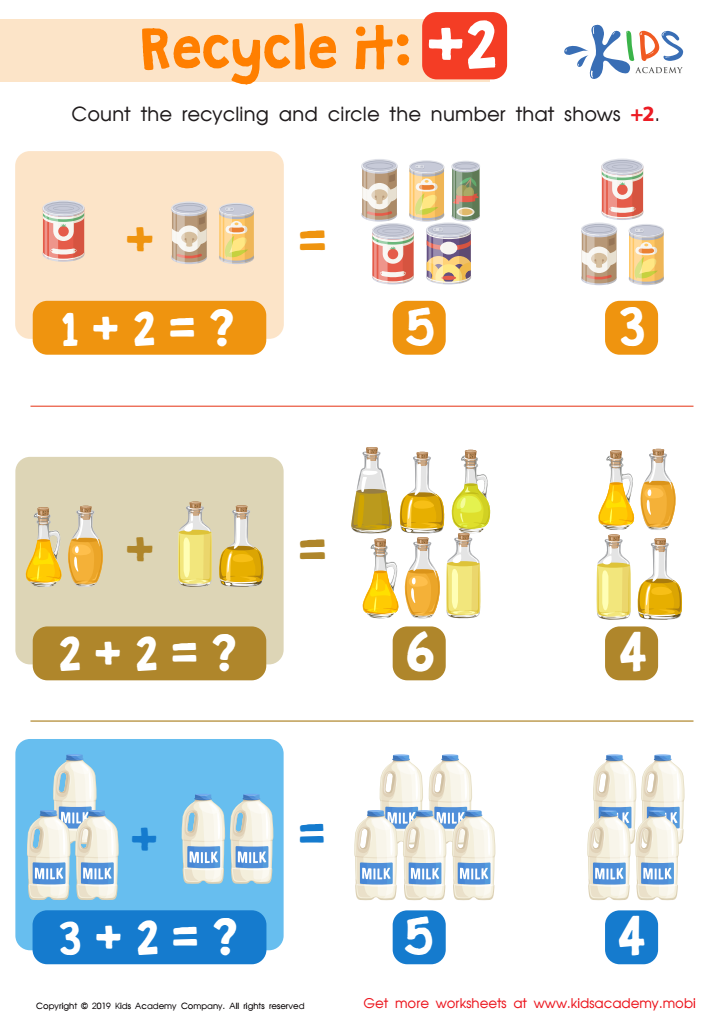Sorting skills Addition & Subtraction Worksheets for 4-Year-Olds
3 filtered results
-
From - To
Our "Sorting Skills Addition & Subtraction Worksheets for 4-Year-Olds" help young learners build foundational math skills through engaging and interactive activities. These printable worksheets focus on teaching kids to sort and categorize objects, while simultaneously introducing them to basic addition and subtraction concepts. Designed with bright colors and fun themes, each activity is tailored to capture the interest of preschoolers, promoting early math proficiency. Perfect for both classroom use and at-home learning, these worksheets foster critical thinking, improve fine motor skills, and lay the groundwork for more advanced math in a fun, age-appropriate way.


Recycle for 15 Worksheet


Sort the Monster's Socks Worksheet


Recycle It: +2 Worksheet
Sorting skills and early arithmetic concepts like addition and subtraction are fundamental building blocks for cognitive development in 4-year-olds. Here's why parents and teachers should highly value these early math influences:
-
Cognitive Foundations: Sorting helps children categorize and organize information—crucial for problem-solving and logical thinking. Recognizing patterns, shapes, and differences enhances their analytical skills.
-
Numeracy Understanding: Introducing addition and subtraction at an early age lays the groundwork for mathematical fluency. Simple activities like counting toys or snacks illustrate how numbers represent quantity, providing a concrete foundation for abstract math concepts they will encounter later.
-
Language and Communication: Discussing sorting tasks and numerical operations develops language skills. Vocabulary related to comparing (more/less, same/different) and arithmetic terms (plus, minus) enriches their understanding and ability to articulate complex ideas.
-
Boosting Confidence: Successfully performing sorting activities and basic arithmetic nurtures self-esteem and encourages a growth mindset. It shows kids that they are capable learners, instilling confidence to tackle more complex subjects.
-
Lifelong Skills: These skills have broad applications beyond academia, fostering efficiency, organization, and systematic approaches to life's everyday challenges.
By incorporating sorting and simple arithmetic into early education, parents and teachers help shape well-rounded learners ready for future academic success.
 Assign to My Students
Assign to My Students




















